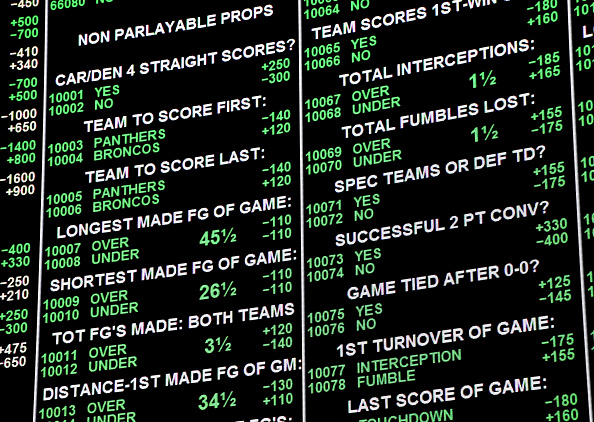
For sports fans who would like to wager on events, but are prevented from doing so by federal and state laws outlawing the bets in the United States, there is a technology startup which could change all of that. Peerplays sports betting could “uberize” the industry for millions of people in the US.
Peerplays Sports Betting Could “Uberize” Industry for Millions
Peerplays Director of Intelligence Michael Maloney is one of the individuals leading the development of the platform, and shared many details about its inception and progression.
Peerplays could possibly revolutionize the sports betting industry because it allows a wider expansion of an age-old practice of a wager on a sporting event between private individuals. In the same way that ride-sharing services like Uber have replaced traditional taxi services for many people, Peerplays will enable individuals to eliminate the need for traditional bookies in their sports betting.
“Players can wager bitcoins and other digital currencies directly with each other, without the need for a middleman,” Maloney explained. “Peerplays is built on a blockchain, rather than a server, which means that anyone, anywhere in the world who has an internet connection can place wagers and collect their winnings without restrictions.”
The 3rd-party blockchain technology that Peerplays will use enables advanced features like smart contracts and profit sharing, and allows the token holders to govern the operation and maintenance of the blockchain. A smart contract is a blockchain-based software program that escrows digital funds and releases them only after certain conditions have been met and verified (such as the winner of a game or tournament). All Peerplays games use guaranteed provably-fair gaming, which means that they are open-source and cryptographically secured, so the results can be publicly audited and verified. The software code is available for anyone to examine, which will make it easy for developers to utilize existing features when building additional games.
Maloney says that Peerplays Bookie (the decentralized sports-betting exchange) will launch in October of 2017, with both desktop and mobile applications. Through that platform, players can bet on sports matches by placing “orders” on the blockchain. Each order contains their requested odds and amount they wish to wager, and these orders go into an order book.
Maloney went on to explain that from there the orders are matched with other players similar to the way orders are matched on a stock exchange. Unlike a regular sportsbook or your local bookie, Peerplays users can “back” a team (bet that the team will win), and also “lay” a team (bet that the team will lose). The Peerplays blockchain matches orders from both sides of the order book and pays out the winner based on the results of the particular sporting event, which again, is publicly verified.
Until the platform goes live, Peerplays is focused on its crowdfunding efforts. Maloney is pleased with how those are going thus far, as that is the only source of funding that the company is currently seeking.
“We raised US $4,000,000 in private contributions before the start of the public crowdfund,” Maloney stated. “We have raised approximately US $250,000 in the first week of the public crowdfund. We are not at liberty to speak about private donors, but some of them will likely make themselves known in the coming months.”
One concern with this expansion of sports betting, which has played a part in maintaining anti-sports wagering laws to this point, is that individuals who may have gambling addiction issues would be especially susceptible to such a product because of its ease of access. Maloney addressed that concern directly.
“All gambling involves certain risks,” Maloney elaborated. “The Peerplays Blockchain Standards Association, a Canadian non-profit organization which is dedicated to the advancement of provably-fair gaming on the Peerplays blockchain, is also working to promote educational initiatives to help raise awareness about the risks of online gambling. One unique advantage of Peerplays is that all wagering takes place using digital currencies such as Bitcoin. Unlike traditional online gambling platforms which allow users to deposit funds with their credit cards and go into debt, Peerplays users cannot wager anything which they do not already own. There are no services which we are currently aware of that allow people to borrow bitcoin like they would borrow funds on a credit card.”
While the possibility for individuals to eliminate their need for more traditional sports bookies exists, the open-source nature of the software also enables those bookies to use Peerplays technology to run their businesses. The capabilities of the platform seem to only be limited to how effectively users can take advantage of it.
In future years, individuals who wish to place wagers on NCAA March Madness games, even from across the country, could do so in an easy way because of Peerplays. That’s just one example of how the sports betting industry could be revolutionized. As the platform continues to develop and grow, sports wager could become the next industry that becomes one which is operated primarily on the internet and advanced software.
Main photo










